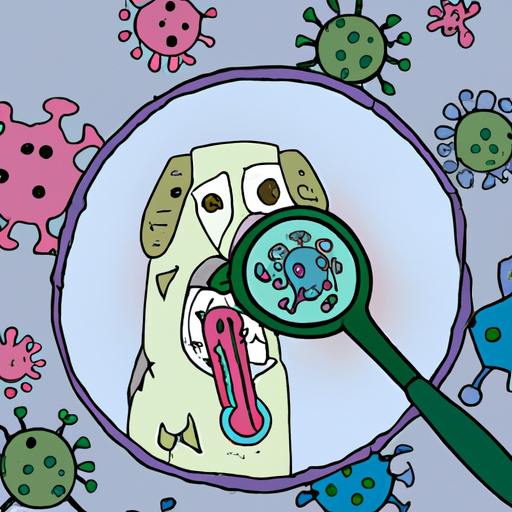As a dog owner, you’re likely familiar with the joy and companionship your furry friend brings into your life. However, part of being a responsible pet parent involves understanding potential health risks that can affect your dog. One such risk is upper respiratory infections, which can cause symptoms ranging from mild discomfort to serious illness. In this guide, we’ll delve into this topic in detail, helping you to understand how dogs get upper respiratory infections, and what you can do to help prevent and treat them if they arise.
What is a Canine Upper Respiratory Infection?
An upper respiratory infection (URI) in dogs, often referred to as “kennel cough,” is an infection that affects the dog’s upper respiratory system. This includes the nose, throat, and windpipe, and can sometimes extend into the lungs.
Upper respiratory infections can be caused by a variety of viruses and bacteria, including Bordetella bronchiseptica, canine influenza virus, and canine parainfluenza virus. Symptoms can include:
- Coughing
- Sneezing
- Nasal discharge
- Fever
- Loss of appetite
This condition is highly contagious among dogs, especially those in close quarters such as kennels, dog parks, or shelters.
How Do Dogs Contract Upper Respiratory Infections?
Understanding how dogs contract upper respiratory infections can help you take steps to prevent your pet from getting sick. The primary methods of transmission include:
- Direct contact: If your dog comes into direct contact with an infected dog, they can easily contract the infection. This can happen through licking, sniffing, or even sharing toys or food bowls.
- Airborne droplets: When an infected dog coughs or sneezes, they release droplets into the air containing the infectious agents. These can be inhaled by your dog, leading to infection.
- Contaminated surfaces: The virus or bacteria causing the infection can survive on surfaces for some time. If your dog touches a contaminated surface and then touches their nose or mouth, they can become infected.
Prevention and Treatment of Upper Respiritory Infections
Preventing an upper respiratory infection in your dog primarily involves reducing their exposure to the infectious agents. Here are some steps you can take:
- Keep your dog’s vaccinations up-to-date. Vaccines are available for some of the most common causes of upper respiratory infections in dogs.
- Avoid places where your dog may come into contact with sick dogs, such as crowded dog parks or kennels.
- Regularly clean your dog’s toys and bowls to avoid any potential contamination.
If your dog does contract an upper respiratory infection, treatment will depend on the severity of the symptoms and the underlying cause. Mild cases may resolve on their own with rest and supportive care. More serious cases may require antibiotics or antiviral medications. Always consult with your vet if you suspect your dog has an upper respiratory infection.
| Prevention Tips | Treatment Options |
|---|---|
| Vaccinations | Rest and supportive care |
| Avoiding crowded places | Antibiotics |
| Regular cleaning | Antiviral medications |
Long-Term Effects and Complications
Most dogs recover from upper respiratory infections without any long-term effects. However, in some cases, complications can occur. These may include pneumonia, chronic bronchitis, or damage to the respiratory tract. If your dog has an underlying health condition, such as a weakened immune system, they may be more susceptible to these complications.
FAQs
Q: Can humans get upper respiratory infections from dogs?
A: Most viruses and bacteria that cause upper respiratory infections in dogs are species-specific, meaning they only affect dogs. However, some strains of canine influenza can potentially infect humans. It’s always best to use good hygiene practices when caring for a sick pet.
Q: Can my dog get an upper respiratory infection more than once?
A: Yes, dogs can contract upper respiratory infections multiple times. There are many different viruses and bacteria that can cause these infections, so immunity to one does not protect against others.
Q: How long does an upper respiratory infection last in dogs?
A: The duration of the infection can vary greatly depending on the cause and the dog’s overall health. Typically, symptoms can last anywhere from a few days to a couple of weeks.
Q: What should I do if my dog has been exposed to an infected dog?
A: If you know your dog has been exposed to an infected dog, it’s best to consult with your vet. They may recommend monitoring your dog for symptoms, or they may suggest preventative treatments.
Being aware of the risks and symptoms of upper respiratory infections can help you ensure your dog stays healthy and happy. Remember, when in doubt, always consult with your vet to ensure your dog receives the best possible care.



